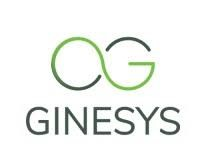Using AI To Improve Your D2C Marketing
D2C revolutionized how brands speak with their customers. In the past, the path to a consumer’s wallet was largely mediated by retailers and wholesalers, leaving brands with limited control over customer relationships and data. With the rise of D2C, companies can now interact directly with their audience, fostering stronger connections and building customer loyalty.
This shift also brought new challenges: how do brands stand out in a crowded marketplace and deliver the personalized experiences customers expect? The answer lies in harnessing the power of data-driven and personalized marketing strategies, which form the backbone of successful D2C campaigns. Enter AI, basically a game-changer in this marketing landscape. AI now enables D2C brands to analyze millions of data points, automate repetitive tasks, and make informed decisions at an unprecedented speed and accuracy.
Amongst many pressing questions, the blog discusses reasons why AI is important for the D2C brand and how a brand can be best prepared for an AI-centric marketing world.

AI-Powered D2C: Redefining Customer Connections and Loyalty
Understanding AI in Marketing: A Primer
Artificial Intelligence is revolutionizing marketing by transforming how brands connect with audiences and make decisions. From automating complex workflows to delivering data-driven insights, AI empowers marketers to predict trends and create personalized experiences with unparalleled accuracy.
Key tools include:
- Machine Learning: Systems that learn and improve performance by looking for patterns in data.
- Natural Language Processing (NLP): The capability of AI to understand and generate human language in applications like chatbots and content optimization.
- Predictive Analytics: Tools that forecast customer behavior and future trends.
- Recommendation Engines: Algorithms that provide personalized product or content suggestions.
Together, these tools form the foundation of an intelligent marketing ecosystem, capable of delivering personalized, data-driven experiences at scale.
Why AI is Crucial for D2C Brands
D2C brands navigate an environment filled with vast amounts of complex data. Take, for instance, any direct-to-consumer skincare brand launching a new product line. In weeks alone, it amasses several thousand unique data points in customer purchase history, browsing behaviors, social media interactions, and feedback. How does the brand make sense of it all and craft a campaign that resonates?
AI has an answer for all. Here's why it's indispensable for D2C brands:
- Scalability: AI empowers D2C brands to analyze and process vast amounts of data in real-time, enabling seamless expansion without compromising performance.
- Personalization: The customer wants a unique experience. AI enables brands to offer their customers personalized content, offers, and recommendations that create better engagement and loyalty.
- Efficiency: AI-powered automation reduces manual activity, freeing the teams to focus on more strategic initiatives.
- Actionable Insights: AI goes beyond the collection of data to give actionable insights that enable smarter decision-making.

AI Meets D2C: Transforming How Brands Connect and Thrive
Key Applications of AI in D2C Marketing
D2C marketing thrives on delivering personalized, timely, and seamless customer experiences. Today, AI has become a transformative force, reshaping how brands connect with their audiences and stay ahead of the curve. Let’s explore the key applications of AI that are reshaping D2C marketing strategies:
Personalized Customer Experiences
AI enables customer segmentation with precision and granular segmentation which fuels hyper-targeted campaigns that resonate deeply with individual preferences.
Examples in Action:
- Product Recommendations: Think of platforms like Amazon or Netflix, where AI analyzes past interactions to suggest items or shows that align with user tastes, based on history and search.
- Dynamic Content Personalization: These are sites that change their formatting, promotions, or even the messaging of their content based on browsing history or location.
- Personalized Email Marketing: AI will create subject lines, content, and product recommendations personalized to the individual recipient's needs for better engagement.
Predictive Analytics for Consumer Insights
Wouldn’t it be invaluable to predict what the customers might want before they even know it themselves? AI’s predictive analytics does just that.
Key Applications:
- Consumer Behavior Forecasting: By predicting when and what a customer will buy next, the company can develop proactive engagement methods.
- Predictive Inventory Management: AI prevents a stockout or overstock situation by aligning inventories with forecasted demand for maximum operational efficiency and customer satisfaction.
AI-Powered Chatbots and Virtual Assistants
Customer service is often the make-or-break factor in D2C success. AI-powered chatbots and virtual assistants offer a seamless, 24/7 support solution that elevates customer engagement and satisfaction.
Real-World Use Cases:
- Post-Purchase Support: Customers can inquire about return policies, warranties, or product usage anytime without waiting for human assistance.
- Order Tracking: Chatbots update the customer on the shipping status in real-time, with the estimated times of delivery.
Optimizing Ad Spend with AI
Ad budgets can spiral out of control, often failing to deliver tangible ROI. With precision tools for automated ad bidding and campaign optimization, AI ensures every dollar is spent more effectively.
Key Benefits:
- AI identifies the most effective platforms, times, and audiences for the campaigns.
- Real-time performance tracking allows for immediate adjustments, maximizing ROI.
Social Media Listening and Sentiment Analysis
What are customers saying about your brand on social media? AI analyzes millions of posts, comments, and reviews for actionable insights through social media listening and sentiment analysis.
Strategic Advantages:
- Monitoring Brand Sentiment: Brand monitoring through AI can find changes in consumer perceptions, which often warns about impending PR crises or opportunities for positive engagement.
- Identifying Trends: It pinpoints the usage of trending topics, hashtags, and discussions that help brands create campaign messages on subjects of current interest to the consumer.

Challenges and Considerations When Using AI in D2C Marketing
As AI continues to revolutionize the D2C market, businesses must navigate some of the challenges and considerations to amplify the benefits while mitigating the risks. Below are some key factors to keep in mind:
Data Privacy and Ethical AI
In an era where personalization is king, data privacy has become a crucial concern. D2C brands rely heavily on AI to analyze customer data and deliver highly tailo red experiences. But where do we draw the line between personalization that works and intrusive data collection?
Consider a scenario: a loyal customer, getting an overly specific e-mail referencing something they purchased last month, which they had never consented to discuss. How would they feel? Trust, a cornerstone of D2C relationships, could be irreparably damaged. Balancing personalization with privacy-disclosure-and ethics in AI practices can reduce such risks. Treat customer data more as a shared asset instead of proprietary to set up long-term loyalty.
Integration with Existing Systems
Integrating AI into existing systems—whether CRM tools, POS platforms, or supply chain systems—can feel like navigating a labyrinth.
Consider a D2C cosmetics brand implementing an AI-driven recommendation engine. The company quickly realizes its legacy POS system cannot share real-time inventory updates with the new AI tool. This disjoint creates mismatched recommendations, frustrating both customers and the marketing team. To overcome this hurdle, the brand must conduct a comprehensive systems audit, opt for modular AI solutions that integrate seamlessly, and foster collaboration across departments. The secret to navigating this challenge lies in adopting strategic, incremental upgrades that ensure smooth integration without disrupting day-to-day operations.
Training and Adoption
Even the most advanced AI tools are only as effective as the teams using them. One common hurdle in D2C marketing is resistance to change—employees may feel threatened by AI or overwhelmed by the technology’s complexity.
How to overcome such resistance? Start with investing in user-friendly tools, providing training, and highlighting success stories.

Struggling to navigate AI challenges in your D2C strategy?
The ROI of AI in D2C Marketing
When it comes to implementing AI in the D2C marketing strategy, the ultimate question isn’t “Why AI?” but rather, “What’s the return on investment (ROI)?” With AI rapidly becoming a cornerstone of effective marketing, understanding how to measure success and appreciate its multifaceted benefits is crucial.
Measuring Success: KPIs for AI-Driven Marketing
What does success look like in an AI-driven D2C marketing campaign? Let’s break it down through some key performance indicators (KPIs):
- Customer Lifetime Value (CLV): AI-driven personalized recommendations and predictive analytics can significantly elevate CLV by fostering stronger, more tailored customer relationships.
- Conversion Rates: AI tools such as dynamic pricing algorithms and chatbot-powered assistance can optimize the customer journey, driving more conversions at every touchpoint.
- Return on Ad Spend (ROAS): AI tools help refine audience targeting, ad creativity, and timing, ensuring maximum returns for the ad budget.
The Tangible and Intangible Benefits
AI’s impact in D2C marketing extends far beyond the immediate metrics, offering both tangible and intangible benefits:
1. Tangible Benefits:
- Increased Sales: AI-driven product recommendations account for over 35% of Amazon's revenue as AI can show the right product to the right customer at the right time.
- Reduced Costs: Automating customer service with AI chatbots can cut operational expenses significantly, handling up to 70% of customer inquiries without human intervention.
- Better Customer Retention: AI tools like sentiment analysis help businesses proactively address customer concerns, reducing churn rates.
2. Intangible Benefits:
- Enhanced Brand Loyalty: Customers value brands that understand their needs. AI can create hyper-personalized experiences that foster deeper loyalty.
- Deeper Customer Relationships: By predicting customer preferences and offering timely solutions, brands can establish an emotional connection that drives long-term engagement.
How to Start Small and Scale
The prospect of integrating AI into D2C marketing might seem overwhelming, but the key is to start small and scale gradually. Here’s how:
- Identify Quick Wins: Start with low-risk, high-reward areas, like implementing AI-powered chatbots for customer service or using AI to analyze existing customer data.
- Leverage Existing Tools: Use accessible platforms like Google Ads’ AI features or Shopify’s built-in AI tools to get a feel for how AI can enhance the campaigns.
- Experiment and Iterate: Pilot an AI-powered recommendation engine on a small product range and track results. Learn what works and scale from there.
- Partner with Experts: Collaborate with AI solution providers to ensure a seamless integration that aligns with the brand’s goals.

Embrace AI: Transform D2C Marketing into a Personalized Revolution
Conclusion
AI in D2C marketing isn’t just a passing trend; it’s a transformative force reshaping how brands connect with consumers. Competitors leveraging AI are already creating experiences that set new benchmarks for customer expectations. Falling behind means losing relevance and market share in a digital-first world where personalization is key.
The time to explore AI-driven D2C solutions is now. Are you ready to embrace the future of marketing? Dive into the world of AI, and unlock new possibilities for growth, loyalty, and success in the D2C space.

